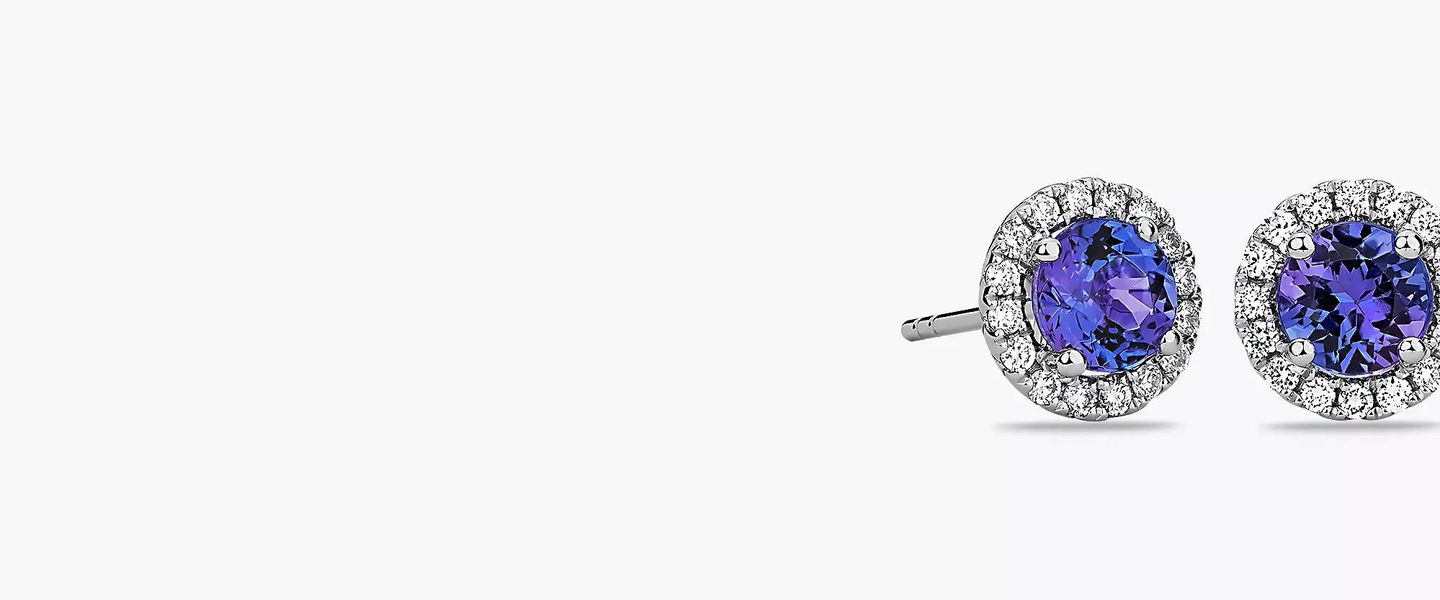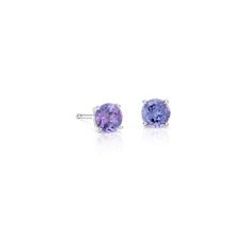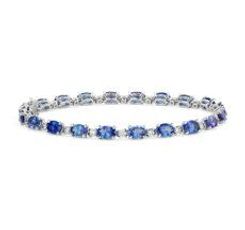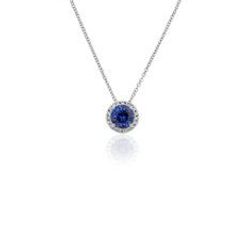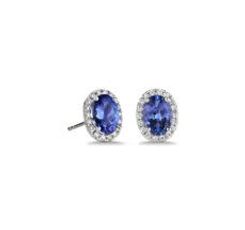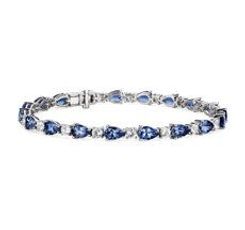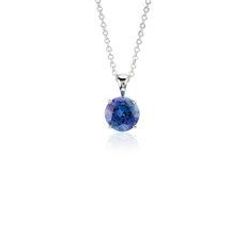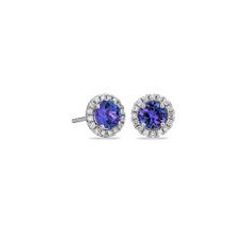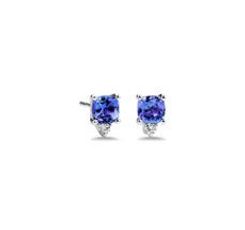What is tanzanite?
Tanzanite is a recently discovered gemstone that comes in rich blue and lush purple hues. The color of tanzanite can change in different lighting, making this rare gemstone unique. This gem is found in only one place in the world—Tanzania—making it rarer than a diamond. Tanzanite is a birthstone for the month of December and is traditionally given as a gift on 24th wedding anniversaries.
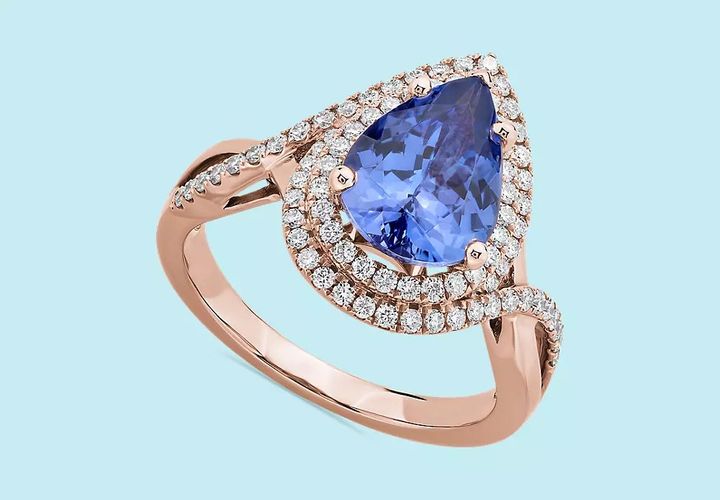
Rob Lavinsky, iRocks.com – CC-BY-SA-3.0, CC BY-SA 3.0,
via Wikimedia Commons / Cropped from original
Mineral: Zoisite
Origins: Tanzania
Symbols: Cognition
Properties: Optimism, Intuition
Durability: 6 to 7
ENHANCEMENTS
Heated or infused to alter color and clarity
CARE
Special Gemstone Care: Do not use ultrasonic cleaning and
sudden temperature changes.
SIMILAR GEMSTONES
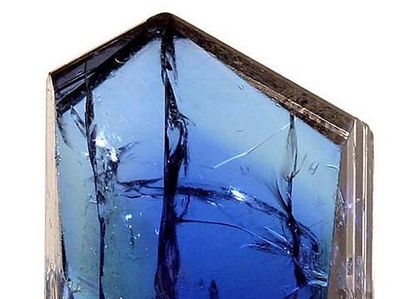
What to Look for in Tanzanite
Tanzanite is adored for its terrific deep hues. These gems show three distinct colors—reddish purple, blue and violet—depending on what type of light they’re in. This optical phenomenon is called pleochroism. There are several aspects to consider when choosing a tanzanite gemstone.
COLOR
Gemstone color is often the most important factor in determining a gemstone’s value. Blue tanzanite is rarer and more highly valued than violet or purple tanzanite, but many people prefer stones with lighter violet hues.

CUT
The cut of a gemstone is what gives it symmetry and shows off the stone’s color and brilliance. Because tanzanite is a pleochroic gem, the cut plays a significant part in which color takes prominence in the finished stone.

CLARITY
Gemstone clarity is determined by any inclusions embedded in the gem, such as gas bubbles, fractures or small crystals. Most tanzanite gemstones have inclusions that are only visible with magnification—and any eye-visible inclusions typically cause a drop in price but don’t necessarily detract from the stone’s beauty. Inclusions aren’t always a bad thing! Rarely, tanzanite contains inclusions that create cat’s eye chatoyancy, a phenomenon where light reflects off the inclusions and produces a luminescent beam, similar to that of a cat’s eye.

SIZE (CARAT)
While diamonds are sized and valued by carat weight, gemstone size is based on diameter in millimeters. The size of tanzanite influences its color—large pieces of tanzanite have the finest color, but smaller gems are more abundant.

ENHANCEMENT
Virtually all tanzanite on the market has been heat-treated to bring out the coveted blue to violet hues these gems are prized for. Heat treatments are a permanent, undetectable enhancement and don’t harm the gemstone, but rather add to its allure.

HARDNESS & WEARABILITY
Tanzanite rates a 6 to 7 on the Mohs scale of hardness, which makes it less durable than harder gemstones like diamonds (10) or sapphires and rubies (9). Tanzanite generally isn’t suitable for intense everyday wear, such as in an engagement ring, unless you choose a protective setting, such as a bezel, channel or pavè setting.
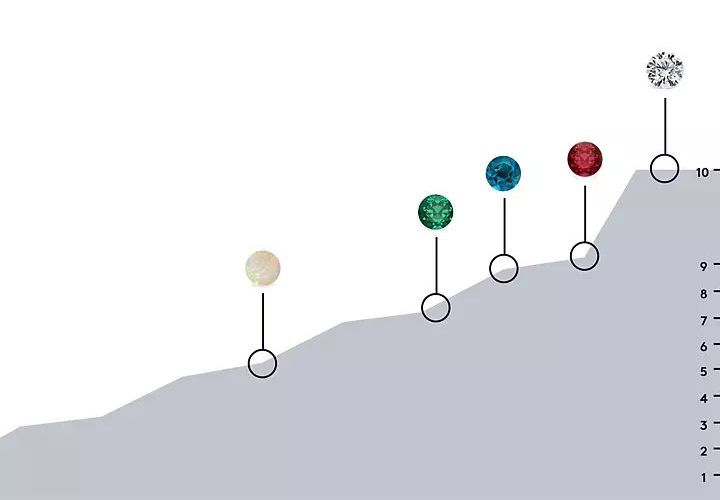
Choosing the Right Tanzanite Jewelry
Violet-blue tanzanite pairs handsomely with cool-toned metals like silver, white gold and platinum.
Shop Popular Tanzanite Jewelry
Famous Tanzania Gemstones
First unearthed in 1967 in the African country of Tanzania, Tanzanite is one of the newest additions to the colorful world of gemstones. Tiffany & Co. quickly recognized its selling potential and became its main distributor, christening the blue-violet jewels as Tanzanite to highlight the stone’s exclusive geographic origins. Tanzanite may not have the ancient history and fabled virtues of other gemstones, but it’s highly prized for its rare beauty.
Tanzanite Buying Tips
Now that you’ve learned about this rare gem through our tanzanite gemstone education, it’s time to learn about buying tanzanite. Here are tips for choosing the perfect tanzanite stone:
1
Focus on the color that matches your budget. Darker tanzanite stones will have a higher price tag than lighter ones. Both are beautiful for all types of jewelry!
2
Look for a well-cut gemstone that’s symmetrical and relatively brilliant.
3
Choose enhanced tanzanite stones to maximize your budget. One-time, safe tanzanite enhancements can improve the color of the gemstone. These enhancements improve the tanzanite for long-term wear.
It’s also important to consider which metals you'll set the stone in. Tanzanite’s unique blue to purple hues are perfect in silver, platinum or white gold pieces. For even more contrast, select rose or yellow gold settings.
LEARN MORE ABOUT GEMSTONES
There’s a galaxy of extraordinary gemstones to discover and admire. Learn more about these phenomenal jewels in our gemstone guide.
